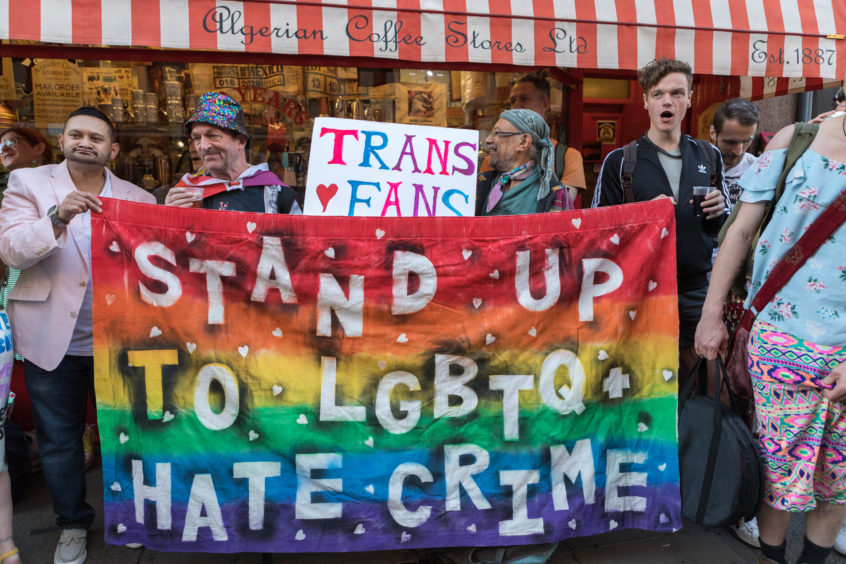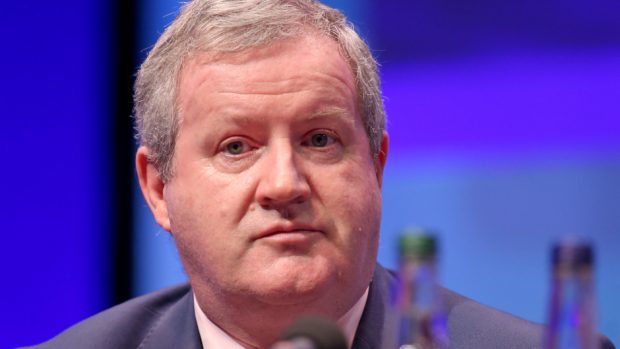It’s hard to think of a policy proposal in recent years that has been met with more criticism than the Hate Crime Bill.
In the last four months a huge number of organisations including the Scottish Police Federation, the Faculty of Advocates, the Law Society of Scotland, the National Secular Society, and the Roman Catholic Church have expressed strong opposition to controversial new ‘stirring up’ offences in part two of the draft legislation.
Last week the already lengthy list of detractors grew longer still as the first of almost 2,000 submissions to Holyrood’s Justice Committee were made public.
Top of this list is an entry by BBC Scotland that “strongly shares concerns” expressed by the Scottish Newspaper Society and Scottish Pen that the bill will “impact on freedom of expression”. It’s rare to see old Aunty intervening in political matters.
Scotland’s legal giants entered the fray with both The Senators of the College of Justice – which represents the country’s most senior judges – and the Sheriffs Association identifying problems with the ‘stirring up’ offences.
These groups pointed to ‘inconsistencies’ in the wording, highlighted the inadequacy of accompanying free speech provisions and warned that juries could be left confused should the offences reach the statute book in their current form.
Religious groups voiced objections. The Free Church of Scotland (Continuing) Presbytery of Skye and Lochcarron – which operates in SNP Leader Ian Blackford’s constituency – cautioned that “Christians in public and even private settings would live in a climate of fear” were the draft offences to be introduced. Perhaps Mr Blackford, a church-goer himself, should take note of their concerns.
A submission from the Hindu Forum of Great Britain also raised serious objections. The group’s Scottish chapter said the Hate Crime Bill “protects less freedom of speech than the equivalent legislation in England and Wales” and warned that it “will undermine open debate and unfairly restrict freedom of expression”.
The Committee is yet to publish submissions from the wider public but if a recent poll is anything to go by, these are likely to be very hostile indeed. A Savanta ComRes poll for Free to Disagree last month found broad support for free speech and opposition to key aspects of the Hate Crime Bill. The Scottish public – i.e. the electorate – do not appear to be on board.
Even when you put all of these concerns to one side, the government has still not demonstrated how new ‘stirring up’ offences will reduce the number of hate-related attacks on individuals in particular groups.

What’s the point of introducing wide-ranging and unpredictable stirring-up laws, when it is not evidenced that they will actually help victims?
With a chorus of criticism over the Hate Crime Bill reaching fever pitch, the proper course of action for politicians in every party has become obvious – they must oppose part two of the bill and see the contentious ‘stirring up’ offences scrapped.
Scotland’s new Hate Crime Bill: Sending a strong message to perpetrators or stifling free speech?
The issues with the ‘stirring up’ offences are legion. In order to make them anywhere near acceptable their vague and subjective language would need to be amended, a requirement for ‘intent’ would need to be inserted and broader free speech protections would have to be introduced.
Making these complex changes would be no mean feat for MSPs who already face a crowded parliamentary timetable, as well as the wider challenges of the coronavirus pandemic.
With a chorus of criticism over the Hate Crime Bill reaching fever pitch, the proper course of action for politicians in every party has become obvious – they must oppose part two of the bill and see the contentious ‘stirring up’ offences scrapped.”
With serious disruption at Holyrood, as in the country as a whole, can busy MSPs really be expected to apply a sufficient level of scrutiny to the Hate Crime Bill? And should the government really be fast-tracking the bill at a time when the majority of their energy should be focused on dealing with Covid-19?
It’s time to end this Hate Crime Bill saga. If MSPs on different sides can work together to see part two of the bill scrapped, the free speech rights of all citizens will be upheld.
They can do this in good conscience, knowing that current laws will continue to protect the victims of crimes motivated by hatred.
Jamie Gillies is spokesman for the Free to Disagree campaign.

